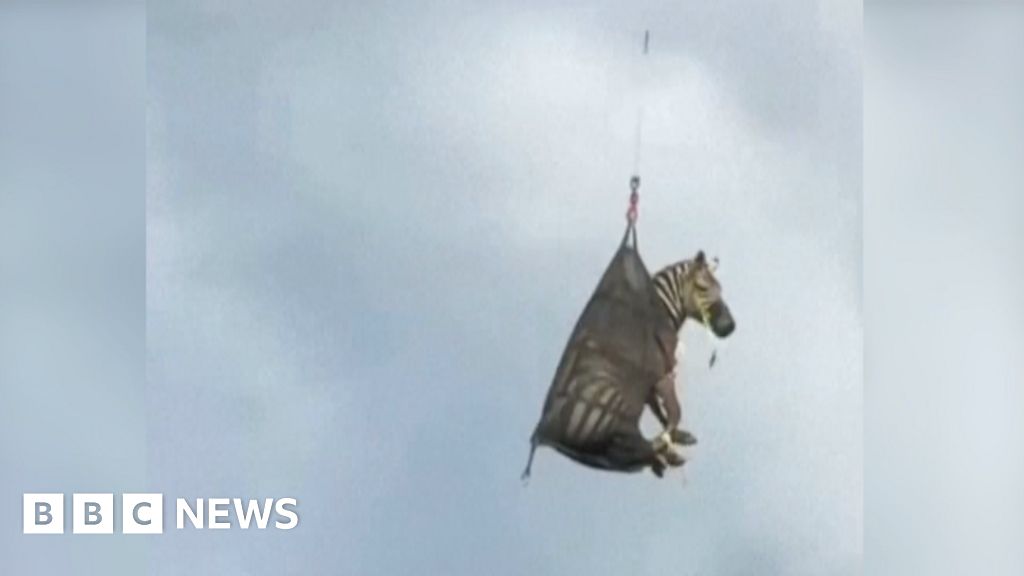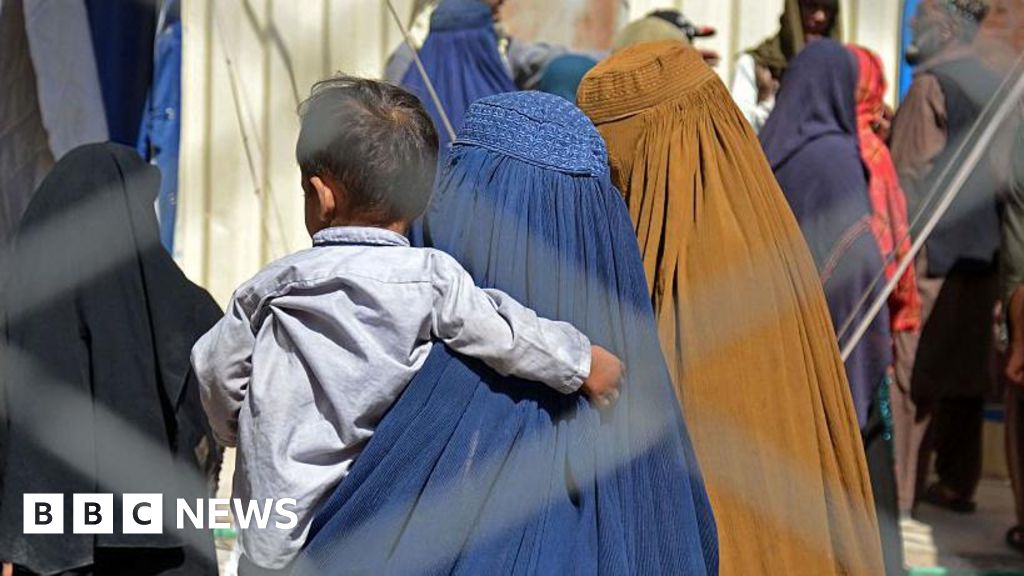ARTICLE AD BOX
Watch: 'The town of Cedar Key is completely underwater'
By John Sudworth and Mike Wendling
BBC News, in Florida
A major hurricane that lashed Florida with fierce winds, torrential rains and "life-threatening" flooding is now hitting southern Georgia.
Hurricane Idalia weakened after making landfall in the Big Bend region, but is still causing significant damage.
Roads and towns are submerged in knee-deep water, as the National Hurricane Center (NHC) warns of "rising water moving inland from the coastline".
Emergency crews are working to rescue trapped residents and clear debris.
More than 450,000 customers in Georgia and Florida have lost power, according to the PowerOutage.us tracking website.
"The eye of Hurricane Idalia has left, but the state is still being impacted," said Florida Governor Ron DeSantis.
He said all eight of the state's urban search and rescue teams had been deployed, while some 5,500 National Guardsmen were helping clear roads of debris and thousands of repairmen are trying to restore power in affected areas.
The federal government has also sent thousands of search and rescue personnel, as well as more than a million hot meals and litres of water, to Florida, the White House said in a statement.
In calls with Mr DeSantis and three other state governors, President Joe Biden pledged his administration's full support on hurricane relief and recovery efforts.
Dan Montey and his wife Sherri were rescued on Wednesday morning from floodwaters in Hudson, north of Tampa.
"We were warned last time and it didn't come, so this time we thought we'd wait it out," Mr Montey said, as the couple climbed out of a rescue vehicle. "Well, here we are. Never trust the weatherman."
Residents of Hudson have a foot or two of water in their homes. Authorities warned the tide could rise further later on Wednesday.
Emergency trucks line Highway 19, the main road into the city, as fire crews deal with a few small blazes in the area.
Along Pasco County, sheriffs say they have pulled about 40 people out of the water, while other locals have been brought out of their houses by boat, and an unknown number remain in the low-lying coastal neighbourhoods.
In Tallahassee, Florida's First Lady Casey DeSantis confirmed on social media that her family was safe after a 100-year-old oak tree fell on the governor's mansion while she and their three children were inside.
Watch: Fierce winds and flooding batter coastal Florida towns as Idalia tears through
Damaging winds were pushing seawater inland along the Big Bend coastline, although wind speeds have eased to about 90mph (150km/h), according to the NHC.
Earlier on Wednesday, Idalia intensified into a Category 4 hurricane - with wind speeds of about 130mph - before weakening and making landfall at 07:50 local time (12:50 BST) at Keaton Beach.
The small town of about 13,000 people is in the sparsely populated Big Bend region, which sits on Florida's so-called nature coast, where the Gulf of Mexico peninsula merges into the panhandle.
According to the NHC, no major hurricane has tracked into that part of north-western Florida since 1851.
"For some communities, this is probably going to be worse than they're envisioning, because so few people understand the power of a major hurricane," Jamie Rome, deputy director of the National Hurricane Centre, told the BBC.
At least 27 of the state's 67 counties are under some form of evacuation order, including 13 mandatory orders in western and central Florida.
Major airports and tourist attractions including Walt Disney World have suspended operations as well.
But there have been widespread reports of people refusing to evacuate and being trapped in their homes, with emergency crews working to rescue them.
"I ain't going nowhere," said John Paul Nohelj, a resident of the town of Steinhatchee.
"If you live near water, you're going to get a wet butt once in a while, and that's just the way it is."
Michael Bobbitt, who is sheltering on the second floor of his two-storey home on Florida's Cedar Key island, said "there's no help coming" soon.
"Our entire downtown is underwater," he told the BBC.
"Part of a whole hotel just broke apart and went into the Gulf. It's like the Gulf is trying to swallow us up."
Even as its winds subside, Idalia is expected to bring heavy rain and flooding to Georgia and the Carolinas.
The 2023 Atlantic hurricane season is forecast to be more active than average, with the peak of the season still two weeks away.
The impact of climate change on the frequency of tropical storms is still unclear, but increased sea surface temperatures warm the air above and make more energy available to drive hurricanes.
As a result, they are likely to be more intense with more extreme rainfall.
Additional reporting from Sam Cabral and Max Matza
Watch: How quickly water rises in a storm surge
Are you personally affected by tropical storm Idalia? If it is safe to do so, you can get in touch by emailing haveyoursay@bbc.co.uk.
Please include a contact number if you are willing to speak to a BBC journalist. You can also get in touch in the following ways:
If you are reading this page and can't see the form you will need to visit the mobile version of the BBC website to submit your question or comment or you can email us at HaveYourSay@bbc.co.uk. Please include your name, age and location with any submission.

 1 year ago
77
1 year ago
77








 English (US) ·
English (US) ·